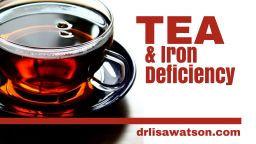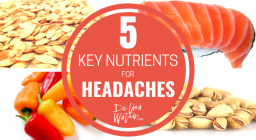
You wouldn’t consider going through pregnancy without taking a multivitamin supplement. Did you know the teen years are second only to pregnancy in nutritional needs – but how many teens are taking a multivitamin supplement? Not enough!
The NHANES and NHANES III (National Health and Nutrition Examination Survey) both concluded that:
“The highest prevalence of unsatisfactory nutritional status
occurs in the adolescent age group”
Read on to discover the ways a multivitamin can support health during the teen years – and beyond.
Increased Growth Needs for Teens
Teens grow at astounding rates! Teenage girls grow approximately 23 to 28 cm during their teen years, and teen boys add approximately 26 to 28 cm to their height. Growth during the teen years accounts for about 20% of total height.
Not only do teens grow up, but they grow out as well. Weight gain during the teens accounts for about 50% of a person’s ideal adult body weight. Lean body mass (muscle mass, bones, organs – everything except body fat) increases in both teen boys and girls.
Multivitamins provide a wide spectrum of both vitamins and minerals – nutrients that are essential for growth. In addition to these nutrients proper amounts of protein, healthy fats (omega 3 fatty acids), and unrefined grains also support healthy growth in teens.

Increased Physical Activity
The lifestyle of most teens is hectic. School, part-time jobs, chores, homework, activities with friends – and yet many teens still find time to engage in regular physical activity. Many adults could learn a lesson from these teens!
Teen athletes (and all active teens) have increased nutritional needs. A higher daily intake of calories is needed – for 2 hours of physical activity an extra 800 to 1700 calories are needed daily! In addition to calories, active teens also have higher requirements for sodium and potassium. And water! Many people forget that water is an essential nutrient – but it is. Maintaining hydration is very important for teen health.
Both male and female teen athletes are at risk of iron deficiency. Regular (yearly or more often) blood tests should be done to make sure iron levels are adequate for teen health. A multivitamin supplement containing iron should only be used once blood tests have confirmed low iron status.
Poor Eating Habits
Teens may be able to teach adults a thing or two about incorporating physical activity into busy lifestyles, but they could also learn a thing or two about healthy eating. There are a number of poor eating habits that contribute to nutritional deficiencies and are (unfortunately) very common in teens:

- Frequently skip or miss meals
- High-sugar snacks (including soda) with low nutritional value are popular
- Excess fast-food consumption
A multivitamin is NOT a substitute for poor eating habits. Taking a multivitamin supplement will not make an unhealthy diet into a healthy one. Multivitamins can support our bodies when we don’t always make perfect choices but should be used together with a healthy, balanced diet.
Unique Circumstances
The only thing many teens have in common is their age. Just about every teen will have their own unique circumstances that lead to individual nutritional needs. Some of these circumstances include
- Sports/ physical activity
- Teen pregnancy
- Illegal drug use
- Smoking
- Alcohol use
- Prescription drug use
- Vegan diet
- Vegetarian diet
- Weight management diets (to gain or lose weight)
Each of these circumstances lead to unique nutritional needs. There is also another circumstance that half of teens experience that lead to increased nutrient needs. That circumstance is the menstrual period. Teen girls are at increased risk of iron deficiency due to their monthly period and use of birth control pills in teens further contributes to deficiencies of B vitamins, folate, magnesium, selenium, zinc and others.
Establish Lifelong Health
The choices we make during our teen years influences the health of our bodies for the rest of our lives. Changes in bone mass and density occur throughout life, but bone mineral density reaches its peak during the late teens and early adulthood. These minerals will serve as a “bone bank” for the remainder of life. Ensure that you are supporting your bones (so they can support you!) by:
- engaging in regular physical activity
- consuming adequate calcium in the diet
- taking a calcium supplement if necessary
- taking a multivitamin and mineral supplement
Correct Deficiencies
One of the most common uses of multivitamins in all ages is to correct nutrient deficiencies.

As previously mentioned, the NHANES and NHANES III studies found that teens had the most unsatisfactory nutritional status of all age groups. They found that teens were most likely to be deficient in:
- Calcium
- Iron
- Riboflavin (vitamin B2)
- Thiamine (vitamin B1)
- Vitamin A
- Vitamin C
- Zinc
A multivitamin, in combination with a healthy diet can correct these deficiencies and prevent the numerous health consequences of having a nutrient deficiency.
Multivitamins for Teens
Above I highlighted many of the reasons why a multivitamin is an excellent addition to teen health – so how do you select a multivitamin for your teen? The best suggestion is to consult with a Naturopathic Doctor who can uncover any unique nutritional needs for your teen. Otherwise, select a high potency, high quality multivitamin and take as directed for your teen’s age.
References
Neinstein L. (Ed.) Adolescent Health Care: A Practical Guide. 4th Ed. 2002. Lippincott Williams & Wilkins. Philadelphia.
National Center for Health Statistics. Third National Health and Nutrition Examination Survey (NHANES III) Public-Use Data Files. Available online at http://www.cdc.gov/nchs/products/elec_prods/subject/nhanes3.htm
















[…] This post was mentioned on Twitter by Candice Esposito, Lisa Watson ND. Lisa Watson ND said: “The highest prevalence of unsatisfactory nutritional status occurs in the adolescent age group” – NHANES III – http://bit.ly/a43pfl […]
My 13yr old is short for his age. can multivitamins help out. which type. thanks
Multivitamins are a great choice for ALL adolescents, including those with short stature. Focus on a good quality multivitamin for teens and be sure he is getting enough zinc and protein in his diet. If you are really concerned, book an appointment with a Naturopathic Doctor in your area. ~Lisa
My appetite and metabolism is not functioning well, I mean it’s not good… I can’t eat a lot . .
my body is too weak i had an ulcer . And my growth development had stop when I was 15 years old .
Can this food supplement help my problem… plese help me…
I am 17 years old can I ???
You need to get your ulcer treated – you can’t absorb nutrients if your digestive tract is inflamed. Seek help from a Naturopath in your area as soon as possible! ~Lisa
My sons doctor says that he needs a vitamin with iron. He is a varsity soccer player and the varsity kicker for his high school. He has three plus hours of practice each day or games. He is 15. How do I know what vitamins are high quality?
For an iron support look for the ferrous gluconate form of iron. Choose multivitamins that have few additives, colours, sweeteners (it’s shocking how many have these things!) and has the full spectrum of B vitamins and some minerals. Keep focusing on healthy food as the main way to get nutrients, and monitor that iron level!
~Dr. Lisa